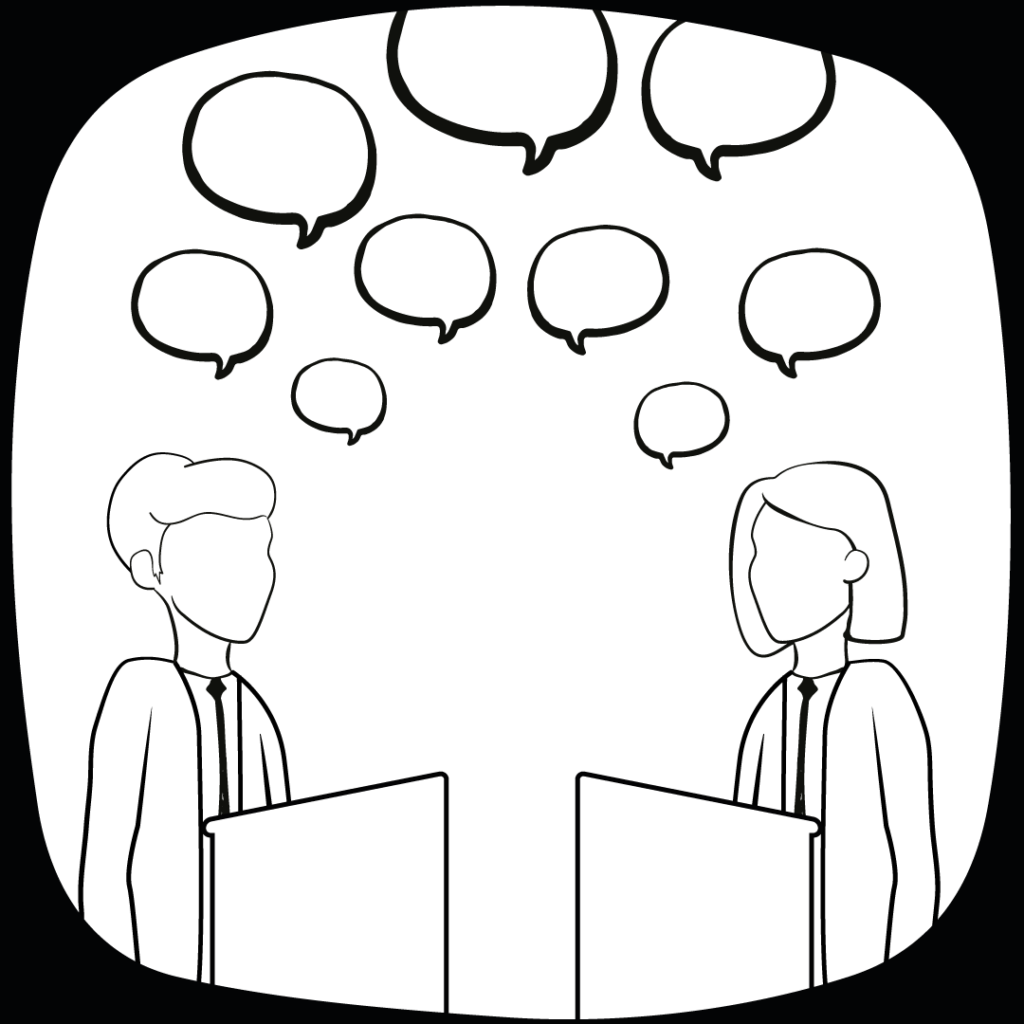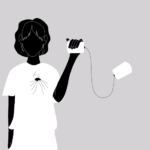EDUCATION AND POLITICAL PARTIES
In the many television debates, among others, you can hear the reasons why “they” are better than “them”, you can also hear corruption accusations thrown around from one side to the other, and you can also hear different promises and pledges, which we’ve almost learned by heart since we’ve heard them for years. Very little importance is given to youth in these debates, their problems, education and other fields which directly touch on Kosovo’s youth.
Illustration: Argjira Kukaj

Comments, viewer numbers on Facebook, participation numbers in party gatherings in Kosovo, campaigns, television debates and news are some of the main elements that prove the attention given to the 6 October elections and the importance these elections have on Kosovo’s future. It’s likely that many subjects of discussions outside and inside the virtual world are around elections, political parties, political programs etc.
So, almost all of Kosovo citizens (potential voters) are thinking about political parties, even though with all we’ve seen and heard the latter aren’t thinking much about the citizens of Kosovo. In the many television debates, among others, you can hear the reasons why “they” are better than “them”, you can also hear corruption accusations thrown around from one side to the other, and you can also hear different promises and pledges, which we’ve almost learned by heart since we’ve heard them for years. Very little importance is given to youth in these debates, their problems, education and other fields which directly touch on Kosovo’s youth.
The state of the education system is alarming, something that is also proven by Kosovo’s Accreditation Agency’s exemption from ENQA and from the ranking done by the PISA test results, it still looks like education is not a priority of the political subjects’ plans.
Education is the main field of a country’s developments, of a society and as such demands commitment, investment, radical change and work.
During the campaign, the political parties’ plans for education policies were occasionally discussed.
Their policies are mainly oriented in the departisation of school directors and educational institutions, in day-long learning, creating laboratories, testing and reviewing of professors etc.
These are some aims and promises that have circulated during every election these last few years. For us students and I believe for all education stakeholders, it’s not important to hear superficial promises, but it’s very required and necessary to know strategies and concrete plans of action for improving the educational system.
If education was taken more seriously these last 20 years, I don’t believe that educational institutions today would be in the state they are.
Of course that during these years there have been positive changes, for which ex-ministers of education gleefully and boastfully talk about in interviews.
Speaking of interviews, no political party has found a space in their tight schedules to interview and/or converse with students about their problems, wishes, needs and aspirations etc.
They haven’t found time for other education stakeholders either.
I hope that the winning subject/s vigorously and constantly work on untangling the mess in which our educational institutions are in.
About the author: Agon Rexhepi is an 18 year old who attends studies in Sociology in the University of Prishtina.
Resource Center –ATRC.


